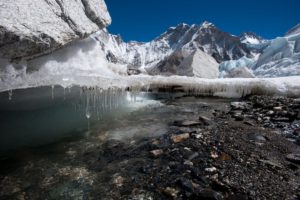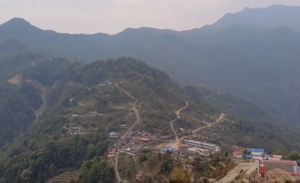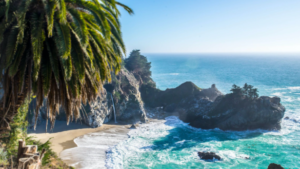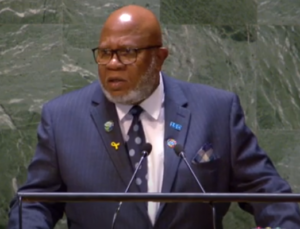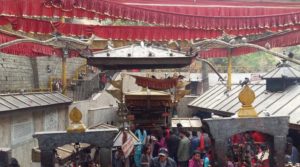Lumbini, Nepal: the Birthplace of Lord Buddha and Fountain of Buddhism and World Peace
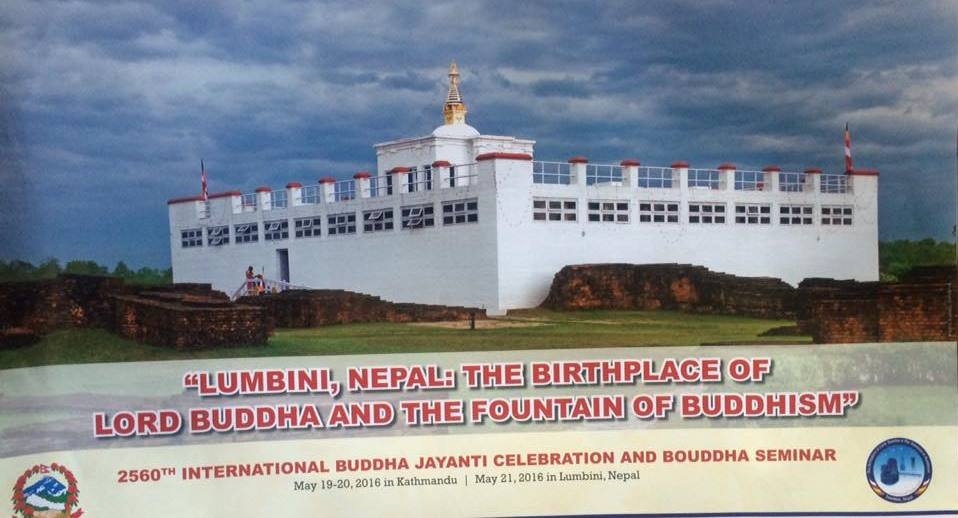
– Prime Minister K.P.Oli
As we gather here on the eve of the Buddha Jayanti, the 2560th birth anniversary of Lord Buddha, I extend my hearty felicitations to you all, to the Buddhist communities, and to those who believe in Buddhist ideals of peace, non-violence and harmony. May this occasion guide us further in our pursuit of peace, development and stability!
This Conference is being organized around the theme of ‘Lumbini, Nepal: the Birthplace of Lord Buddha and Fountain of Buddhism and World peace’. We attach great importance to this Conference not only in terms of its timing on the eve of the Buddha Jayanti but also in terms of the content that connects Lumbini with Lord Buddha and origin of Buddhism. Undoubtedly, Lumbini is the fountain of Buddhism. We hope our deliberations over the course of next couple of days will contribute significantly to enriching our understanding of the indispensable link between Lumbini and Buddhism. We also expect to benefit towards this end from the wise counsel of the scholars present here.
This part of the world gave birth to major civilizations and our ancestors were great thinkers, leaders, innovators, explorers, scholars and researchers. We must be proud of our civilization and our ancestors. We have been greatly benefited from the ideals propounded by various thinkers and philosophers in different periods of time. In the annals of this great tradition, the contribution of Lord Buddha and Buddhism to the development of our civilization must be assessed. We have not been able to glorify our rich civilizations, our oriental values and philosophies on a global scale while our ancestors were the pioneers in leading human civilizations. We must make concerted efforts to project our rich cultural heritage as an embodiment of our collective identity.
Lord Buddha is an embodiment of our quest for truth and peace. For us, he is not just the light of Asia: he is the light of the whole world. His teachings provide, in the form of Buddhism, a strong foundation on which our historical and cultural identities have been shaped. And, we are proud to share this glorious tradition.
Buddha means ‘a man with supreme enlightenment’. His renouncement of all worldly pleasures at the royal palace, pilgrimage for truth and attainment of enlightenment speak volumes about his perception of the essence of human life. His teachings always stressed the importance of harmony, tolerance and selflessness. He emphasized the need of working for the happiness of the multitude and for others rather than for oneself.
We cannot make a distinction between Lord Buddha and Buddhism. It was in him the philosophy of Buddhism and enlightenment was born and developed. In fact, the renunciation of all worldly pleasure by Lord Buddha was inspired by enlightenment. Detaching Buddhism from Lord Buddha and enlightenment from his early life will be a fallacious notion.
Through the notion of four noble truths and eight-fold path, Lord Buddha has shown us a way of life towards ultimate happiness and peace. These truths and paths inspire us to discipline our life and inculcate in us good virtues. Good virtues are essential for individuals, families, communities, societies, nations and the world as a whole.
The concept of ‘middle path’ that Buddha asked his disciples to follow permeates the overall philosophy of Buddhism. This path stands for a balance between two extremes – a life of self-mortification in the name of religious practices and a life of mere sensual pleasure. This notion takes an intermediary approach in relation to spiritualism and materialism. I believe, it is equally important for us today as we continue to get entangled in a ‘wheel of suffering’ due to our insatiable craving for material resources.
Furthermore, Buddhism, as a philosophy, has a universal appeal. This should be understood in terms of our core human values and a common destiny. It is about peace, non-violence, compassion, harmony and forgiveness. These are higher noble causes that bind human beings together. They transcend particular location and context. They become all the more important today when the world is desperately striving for peace and harmony against the backdrop of conflict, hatred, intolerance and extremism.
Now on Lumbini and its importance with reference to Buddhism:
Lumbini is the place where Buddhism originated. It is ‘the land of Buddha and the fountain of peace’. It is a treasure land of historical, religious, cultural and archaeological significance. It has invested the Nepalese people with values and identity and inspired both Nepalese and foreign visitors including artists and scholars.
Today, Lumbini is increasingly becoming a heart of attraction for tourists, pilgrims and scholars from all over the world. It has also become a centre for the study of and research on international Buddhism.
The Government of Nepal is fully committed to promoting Lumbini as the birthplace of Lord Buddha and the fountain of Buddhism. We are effortful to protect and preserve the archaeological relics in the greater Lumbini area. Implementation of a comprehensive Master Plan is underway in this regard. The Lumbini Development Trust is mandated to carry out the works in accordance with the directives of the Master Plan.
We also aim at promoting and developing Lumbini as the centre of International Buddhist Studies. We acknowledge the important contributions of researchers and scholars. We also commend Lumbini Buddhist University for taking the lead in this sector.
Lumbini and Buddhism have also attracted some attention at the international front. Our neighbours and friendly countries have extended, since long, their generous support and cooperation to Lumbini’s development. The United Nations General Assembly Resolution recognized ‘the Day of Vesak’ in 2000 thereby acknowledging Buddhism’s contribution to the spirituality of humanity. The contribution from UNESCO and UNDP especially after Lumbini was recognized as the World Heritage site in 1997 has been remarkable.
However, much still remains to be done. There is a further need to promote Lumbini as the birthplace of Lord Buddha, as the origin of Buddhism and as a site of world peace. For this, more studies, researches and further scholarly engagements will be helpful. This will also need further support and cooperation from the international community. We hope we will continue to get such support in the days ahead as well.
As we discuss here the Buddhist ideals of peace, cooperation and selfless service, I must tell you that the last one year was more like a ‘mixed bag’ for Nepal.
We were hit hard by the devastating earthquakes in April and May 2015. We could fortunately shake off the dust rather quickly and easily. Our attempt to cope with the tragedy was well supported by Nepalese people’s resolve and determination as well as the spontaneous and generous international cooperation.
We could finally have in September last year a constitution promulgated by the Constituent Assembly elected by the people after eight-year long consistent efforts. With this, Nepalese people had their hope for peace, stability and development renewed.
However, the time did not have a linear and smooth course. While we were trying to focus on the post-earthquake reconstruction and implementation of the new constitution, the agitations in the Terai and five-month long undeclared blockade of goods at Nepal-India border points brought another humanitarian crisis in the country. Suffering of the Nepalese people, particularly the earthquake victims, was compounded due to this.
Despite such ups and downs, the present Government has always been working with unwavering goals and commitments. Our focus now is on implementation of the Constitution. 193 laws that were incompatible with the new constitution have been amended and we plan to have additional 138 enacted within a year. We have decided to hold the elections for the existing local bodies within November/December 2016.
We concede that there has been some delay in post-quake reconstruction. However, necessary legal and institutional frameworks have already been put in place and National Reconstruction Authority has started its work. We have also adopted the “Post Disaster Recovery Framework 2016-2020”.
Our priority now is to strive for economic development and prosperity. We have oriented our policies and programmes towards this direction. My recent visits to India and China were also focused on the same. We count on the support of the international community on this.
I take this opportunity to reiterate that the present Government is open to dialogue with all parties and communities on their legitimate political concerns, if any. I urge all to realize the need of cooperation and collaboration for the sake of unity, development and stability. On this auspicious occasion, I invite all stakeholders to take ‘nation first’ motto for the betterment of the country.
I know, as we strive for the effective implementation of the constitution, we have a challenge to restore hope, inculcate self-confidence, rebuild better and revive our economy. Our efforts are closely linked to the long cherished aspirations of the people. And, the success in our efforts will be instrumental towards attaining the goal of economic development and long term stability.
Finally, I am confident that you all will benefit from the rich presentations of both local and international experts in this Conference. I also believe that it will be able to provide us with some innovative guidelines for our future policies and programmes with regard to promotion and development of Lumbini.
(Excerpts from remarks by Prime Minister K P Oli at the International Buddhist Conference, 19 May 2016 in Kathmandu.)


